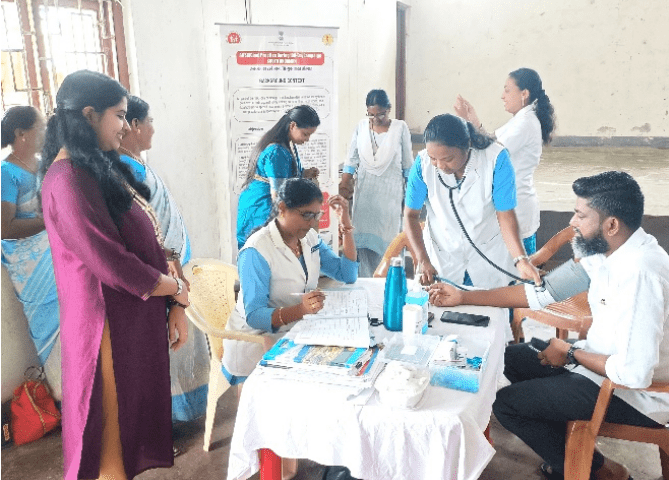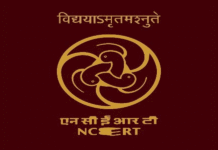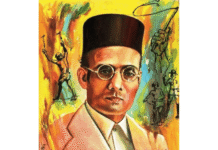In a proactive step toward community health, the District Administration of South Andaman has launched a series of health camps under the Government of India’s TB Mukt Bharat Abhiyaan (TMBMA). The initiative, organized through the District Health Society in coordination with the Directorate of Health Services and the ICMR-RMRC, kicked off with the first awareness-cum-screening camp at the Community Hall in Prothrapur, covering Ward Nos. 19 and 23. The event marked a significant outreach in the effort to eliminate tuberculosis and raise public awareness about lung health.
The campaign aims to spread awareness, provide free health screenings, and connect individuals to essential services such as digital health record creation and financial coverage for treatment. The Prothrapur camp saw the participation of 55 residents, who availed themselves of various medical services including general health checkups, TB screening, and registration under Ayushman Bharat schemes.
One of the key highlights of the camp was the use of state-of-the-art handheld chest X-ray machines provided by the ICMR-RMRC. These mobile diagnostic tools enabled on-site detection of potential lung health issues. Medical personnel conducted blood pressure and blood sugar tests, while National TB Elimination Programme (NTEP) doctors screened individuals for early signs of tuberculosis, assessing risk factors and guiding those in need toward follow-up care.
Another major component of the initiative was the creation of Ayushman Bharat Health Account (ABHA) IDs and the generation of PM-JAY e-cards. These services empower residents by ensuring digital access to their health records and enabling free treatment under India’s flagship health insurance scheme. Trained personnel assisted individuals in understanding the benefits of these schemes and how to utilize them effectively.
The camp also witnessed the enthusiastic involvement of local leaders. Ward Councillors R. Vetrivelu and Radhika not only participated in the inauguration but also underwent chest X-ray screening themselves, leading by example. Their active involvement encouraged others to participate without hesitation and demonstrated a strong model of Jan Bhagidari, or people’s participation, in public health efforts.
According to officials, the screening camp’s turnout and engagement levels exceeded expectations, reinforcing the importance of bringing healthcare services closer to the community. Many residents expressed appreciation for the convenience of accessing diagnostics and insurance benefits without needing to visit hospitals.
Health officials noted that tuberculosis, despite being curable, continues to pose a serious public health risk, particularly in underserved or densely populated areas. Early detection remains the most critical factor in successful treatment outcomes, and awareness campaigns like this one are essential in identifying cases before they advance. Alongside medical screenings, health educators were present to dispel myths, answer questions, and distribute informational brochures in local languages.
The South Andaman district plans to organize several more such camps across different wards in the coming weeks. The schedule has been shared with Health and Wellness Centres and Urban Local Bodies, and residents are being encouraged to stay informed through local announcements and posters.
The District Health Society has appealed to citizens to attend these camps and use the opportunity to learn about tuberculosis, get screened, and secure digital health coverage. The administration emphasized that these camps are part of a larger mission to build a healthier society, reduce the burden of communicable diseases, and empower citizens with the tools they need to take control of their health.
In tandem with the screening efforts, community health workers and ASHA volunteers are being mobilized to conduct door-to-door awareness drives. Their role is to ensure that vulnerable groups such as the elderly, daily wage workers, and individuals with pre-existing conditions are informed and encouraged to participate in upcoming camps.
The success of the Prothrapur camp underscores the value of grassroots health initiatives. By integrating diagnosis, awareness, and benefits distribution in a single outreach, the administration is setting a precedent for responsive and inclusive healthcare. With continued participation and government support, the district hopes to not only curb TB but also instill long-term habits of preventive health care among its citizens.





